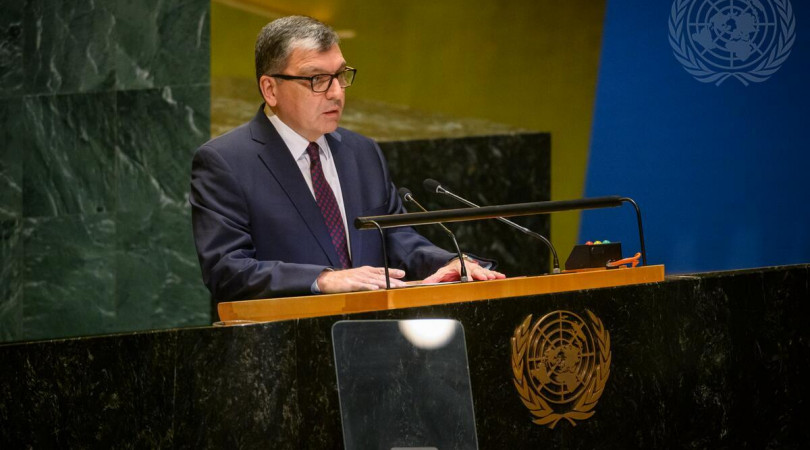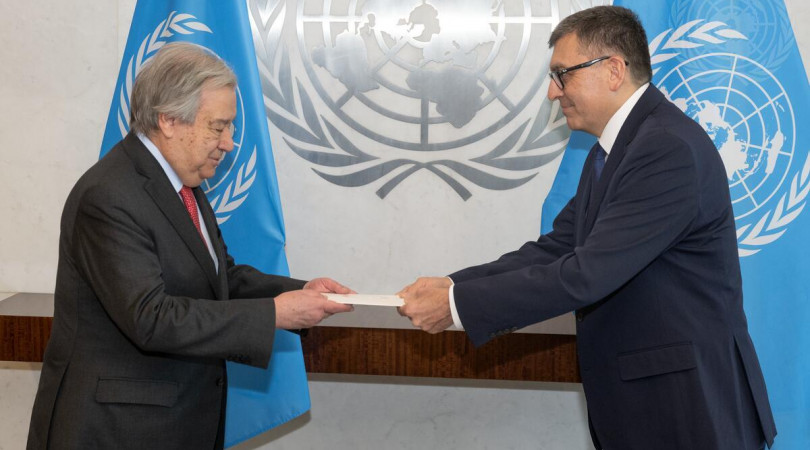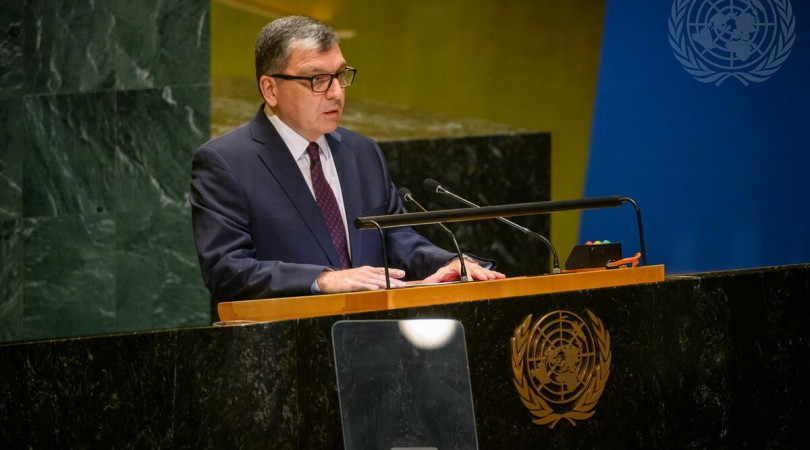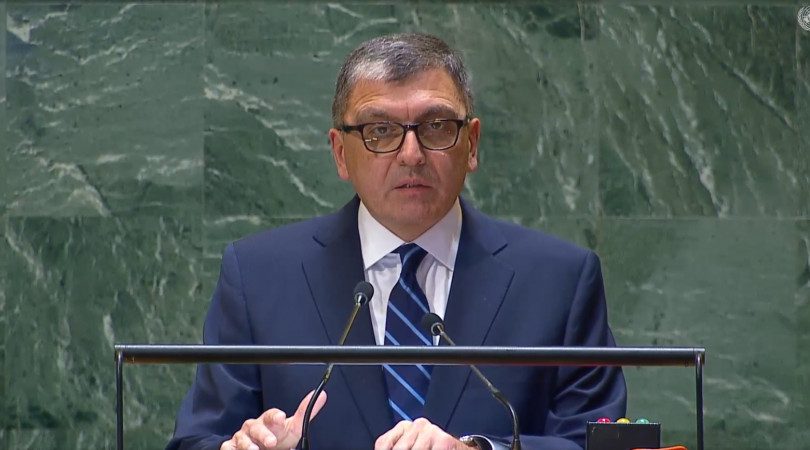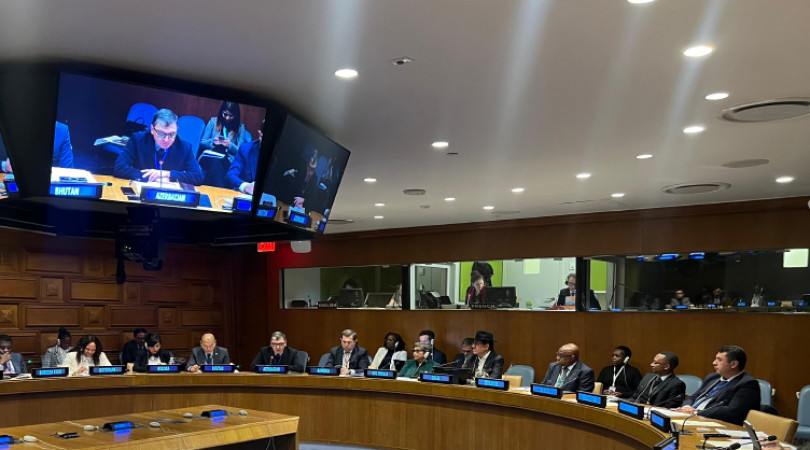Statement by Mr. Tofig F. Musayev Deputy Permanent Representative of the Republic of Azerbaijan to the United Nations at the Sixth Committee of the seventy-ninth session of the United Nations General Assembly under agenda item 81: "Status of the Protocols Additional to the Geneva Conventions of 1949 and relating to the protection of victims of armed conflicts"
|
Azərbaycan Respublikasının |
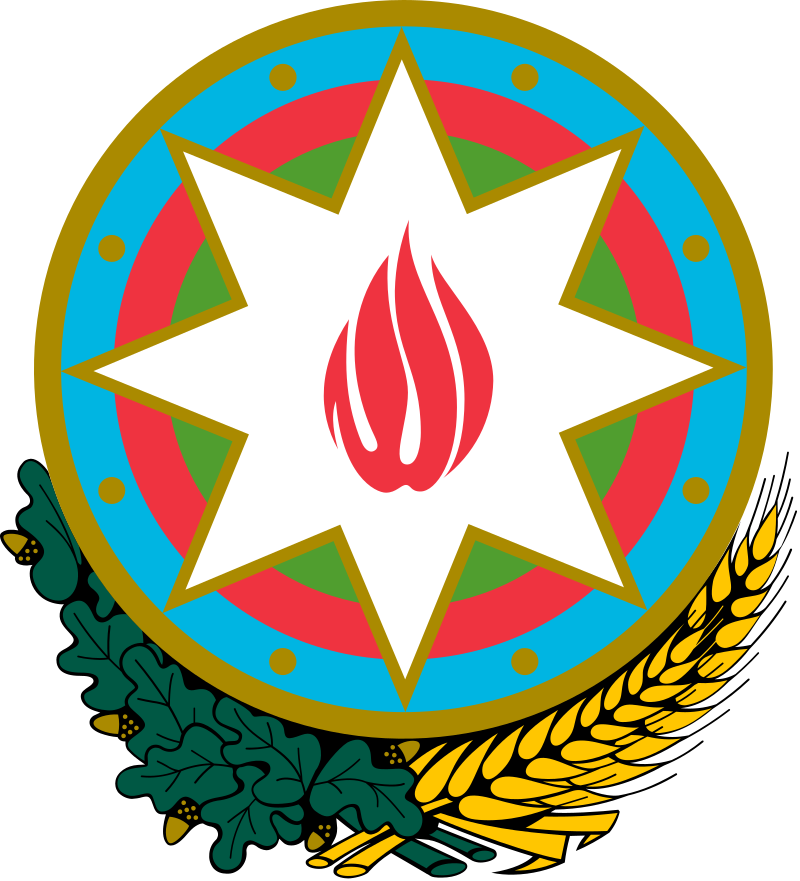 |
Permanent Mission |
|
633 Third Avenue, Suite 3210, New York, N.Y. 10017 |
||
|
Statement by Mr. Tofig F. Musayev Deputy Permanent Representative of the Republic of Azerbaijan to the United Nations at the Sixth Committee of the seventy-ninth session of the United Nations General Assembly under agenda item 81: "Status of the Protocols Additional to the Geneva Conventions of 1949 and relating to the protection of victims of armed conflicts" 6 November 2024
Mr. Chairman, Azerbaijan is strongly committed to the fundamental principles and rules of international humanitarian law, condemns all violations of the laws and customs of war and underscores the critical importance of accountability for such violations. My country has consistently promoted international humanitarian law at the national and international levels. Thus, Azerbaijan initiated the adoption of the General Assembly biennial resolution on missing persons, as well as the Commission on the Status of Women resolution on the release of women and children taken hostage, including those subsequently imprisoned, in armed conflicts and the Human Rights Council resolution on the protection of cultural rights and property in situations of armed conflict. Azerbaijan also contributed to the drafting and publication of the UNESCO Military Manual on the Protection of Cultural Property – the first international training tool of this kind intended to disseminate legal obligations through targeted awareness raising activities and serve as a practical guide for armed forces, including peacekeeping forces.
Mr. Chairman, Azerbaijan presented information for this year’s report of the Secretary-General on the matter (A/79/174), the full text of which is available on the website of the Sixth Committee (www.un.org/en/ga/sixth/). I would like to outline the following points. Serious violations of international law amounting to war crimes, crimes against humanity, acts of genocide and terrorism were committed during the aggression against Azerbaijan in the early 1990s and the subsequent occupation of its territories for almost thirty years. Despite the end of the conflict and the progress achieved in the advancement of the peace agenda, the serious challenges remain and continue to impact civilians. Thus, a complex mines threat impedes the safe return of internally displaced persons to their homes in the liberated territories and delays the essential reconstruction and development works there. Throughout the conflict, 3,460 citizens of my country became mine victims, including 359 children and 38 women. At the same time, the number of post-conflict mine victims in Azerbaijan over the past four years has reached 381, of whom 70 lost their lives and 311 suffered horrific injuries, the majority of whom are civilians, including children and women. There is ample evidence showing that landmines and booby traps were placed in civilian areas and objects, far from the former front line, in places from which civilians had been displaced and to which they were expected to return. Even cemeteries in the formerly occupied territories were mined to inflict maximum possible casualties. The scale and gravity of the landmine threat in Azerbaijan necessitate urgent, continued and adequate international support to its humanitarian demining efforts, along with measures to ensure accountability under international law for targeting civilians by landmines, booby traps and other explosive devices and for refusing to share their locations.
Mr. Chairman, The need to clarify the fate and whereabouts of 3,974 missing Azerbaijani nationals is another pressing humanitarian issue. Of them, 3201 are military personnel and 773 are civilians, including 75 children, 116 women and 314 elderly. It is worth noting that, although hundreds of those who are reported missing were seen alive at the moment of their captivity, they then disappeared without a trace. Moreover, dozens of Azerbaijani detainees died or went missing even after being visited in custody by the ICRC. Since the end of the conflict in November 2020, 18 mass graves containing the remains of over 600 people have been discovered in the liberated territories of Azerbaijan, of which 155 have been identified, handed over to their families and buried. Mass graves shed light on the willful killing of many civilians and other persons protected under international humanitarian law. International humanitarian law imposes specific obligations with regard to the search for missing persons and the treatment of the dead, including by recovering and returning human remains and identifying, mapping and preserving mass graves and other burial sites.
Mr. Chairman, Azerbaijan has taken concrete steps to investigate and prosecute mass atrocities and other offences committed during the conflict. At the same time, the denial and ignorance of the most serious crimes by those who should bear responsibility for them and their political allies, coupled with their attempts to discredit and thereby obstruct justice through disinformation and smear campaigns in the media, parliaments and international bodies, constitute a clear contempt for international law and the rule of law. Accountability and redress are essential to ensure the rights of the victims, prevent the recurrence of violations and adopt a longer-term approach towards shaping a more peaceful, just and inclusive future. Azerbaijan will continue its efforts to further promote and advance international humanitarian law and effectively combat impunity for serious violations of international law.
Thank you. |
||

